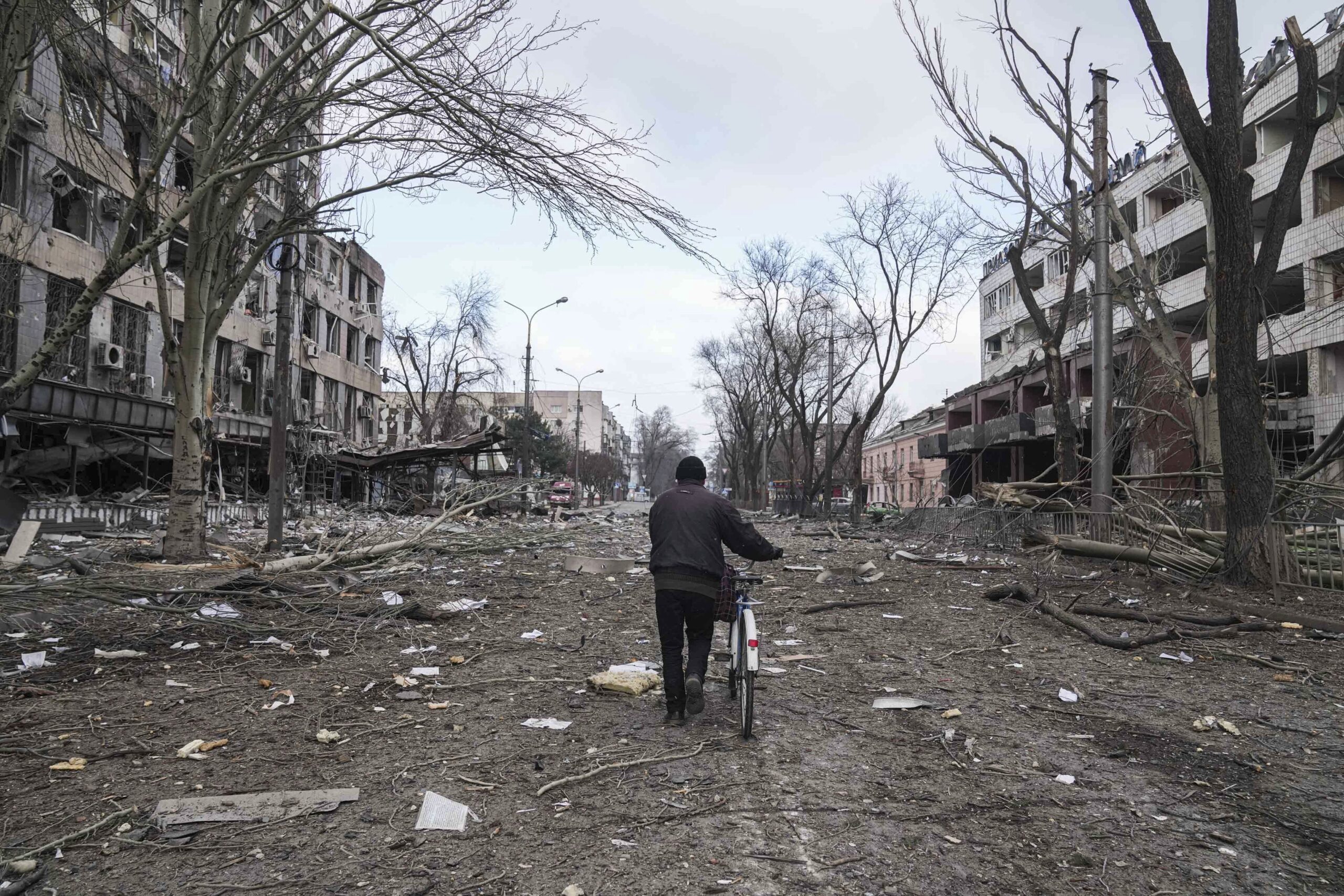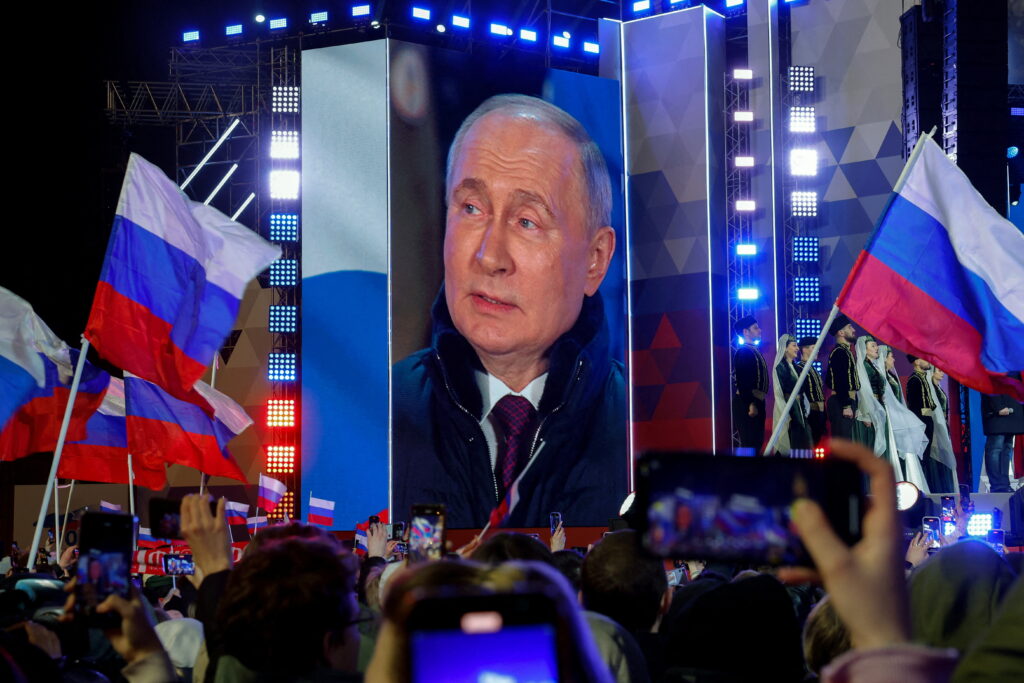The Russian government’s decision to launch a «special military operation» in Ukraine was astoundingly pernicious. For most Russia watchers, it was also extremely unexpected; even those who had warned of further deterioration of the situation the day before could hardly have imagined such a catastrophic spiral. This will bring dire consequences for Ukraine, Russia and the whole world for years to come. And already, as this conflict unfolds further, experts will now face the question of why the Russian leadership made such a decision.
To date, very little is known by outsiders about the mechanisms for making strategic decisions in the Kremlin. That inevitably means many of the current assessments and assumptions may turn out to be wrong. Even so, political science has accumulated considerable experience in studying the adoption of foreign policy decisions in different states in different eras. This experience seems to be useful for understanding the mechanisms for developing and implementing a decision to launch a Ukrainian assault.
To analyze the essence of this decision, one should not succumb to the temptations to deny Putin and his entourage rationality, while fixing attention on the emotions behind their steps. In any case, most of the steps taken by the Kremlin, both before and after February 24, 2022, look quite rational; there is no reason to consider the launch of this military campaign in this regard as something exceptional. Rather, it should be assumed that this decision fits into the general logic of public administration in Russia. Its perniciousness was due not to the specifics of Russian policy towards Ukraine, but to more fundamental factors. These include (1) the characteristics of the Russian political regime, (2) the mechanisms of governance of the Russian state, (3) misconceptions about the possible consequences of decisions made, and (4) likely assessments of the consequences of one’s own actions based on previous experience.
It seems that the most important factor influencing the nature of this disastrous decision was the personalistic nature of Russian authoritarianism. Authoritarian regimes suffer from a lack of freedom of speech just as much, if not more than citizens living under authoritarian conditions. The lack of alternative sources of information, the lack of opportunities to compare different points of view and make decisions based on the competition of different approaches adversely affects the quality of managerial decision-making — these defects were noted by Soviet dissidents more than half a century ago.
Moreover, over time, in many autocracies, experts are replaced according to the principle «we don’t need smart, we need loyal ones»: when preparing decisions, the competence of officials gives way to their loyalty.
These aspects in Russia were clearly visible in the field of foreign policy expertise, where the voices of supporters of a radical military confrontation with the West have recently been louder, while more moderate approaches, most likely, have been little considered. The cloistered atmosphere in which the most important decisions were prepared only exacerbated the decline in their quality.
Moreover, personalist autocracies (unlike one-party regimes, not to mention monarchies) are characterized by a low level of institutionalization in decision-making, which opens up scope for almost unlimited voluntarism on the part of the political leadership. It suffices to compare the decision to start a war in Ukraine with its closest equivalent in Soviet history — the decision to send troops to Czechoslovakia in 1968. The decision back then was preceded by numerous meetings and collective discussions in the Politburo, negotiations with the leadership of Czechoslovakia, as well as discussions with the Eastern European allies of the USSR. Although this decision was also detrimental to the USSR, the Soviet leadership as a whole was able to achieve its goals in Czechoslovakia, while avoiding the worst case scenario for itself. A directly opposite example in Soviet history can be the decision to send troops to Afghanistan, but this episode was of a slightly different nature: this decision was made by the country’s deeply ill leaders, who at that time were physically incapable of collective discussions. The state of collective discussions in today’s Russian leadership was clearly demonstrated by the meeting of the Security Council on February 21, 2022 on the issue of recognizing the DPR and LPR: there was no question of any discussion, the public view was limited only to an approval by the participants of the previously adopted decision (which in the end was radically different from what was publicly announced at the end of the meeting).
Bad governance?
As I have already written, the main goal and main content of public administration in Russia is the rent-seeking. The high quality of preparation and decision-making in the country is maintained only in a narrow zone of strategically significant «pockets of efficiency» under the patronage of the political leadership (the Central Bank can serve as an example of this kind). However, the «pockets of efficiency» do not stop the general degradation of the quality of public administration — on the contrary: knowing that the same Central Bank is capable, having accumulated enough gold and foreign exchange reserves, to pursue a justified course, the authorities felt their own invulnerability, prompting them to take more decisive, but less thoughtful steps.
In such conditions, foreign and defense policy are affected by the vices of «bad governance» more than many other areas. In the absence of civilian control, they are covered with a veil of state secrecy, which is convenient because it allows you to hide various miscalculations. This prompts the heads of the relevant departments to strive to achieve the tasks assigned to them quickly and at any cost, not caring about further consequences (for example, to achieve the «demilitarization» and «denazification» of Ukraine, not thinking about the further management of its territory in the event that these tasks would be met) and make unfulfilled promises. It is not surprising that the possible costs associated with the implementation of the decision on the «special military operation» were downplayed or not taken into account in advance. At the same time, «work on the mistakes» threatens to turn into even greater losses.
Misperceptions
In the absence of real expertise and outright misrepresentation of information, ideas about the opposing side are often built on the basis of a multiplication of stereotypes and fears. Therefore, the Russian authorities could project onto the leadership of Ukraine the expectation that the «American puppets» would run away to their masters when threatened, and that they themselves would stop supporting them (as happened in 2021 in Afghanistan). They also projected their own phobias. This includes ideas that were often repeated by Russian politicians in their public statements in the past and which probably became the basis of strategic decisions. These are views on how Russians and Ukrainians are «one people», and assumptions that the split of Ukraine into Western and Eastern is eternal and irremovable; opinions that mass pro-Russian sentiments allegedly dominate in Ukraine and only the establishment seems to be captured by the nationalists.
If you look a little deeper, it is worth noting that these misconceptions are based on unrealistic retrospective worldview expectations inherent not only in the Russian leadership, but also in many other world politicians. They are based on how, in the modern world it is supposedly possible to restore the previous and lost political, social and international order — if in the rhetoric of Donald Trump, they were expressed by the words «make America great again», then in Russia they were previously embodied in the slogan «we can do it again.» Not surprisingly, with this approach, alternative assumptions about the state of affairs outside the country were not seriously discussed or remained outside the scope of decision-making.
Repetition of the past
It is very likely that a military operation in Ukraine was seen by the Russian authorities as an extrapolation of the previous experience of the annexation of Crimea in 2014, the decision on which Putin, in his own words, made unilaterally. It is worth bearing in mind that Crimea in the eyes of the Russian leadership looked like a «success story»: while domestic political support for this step turned out to be very high, Ukraine was unable to resist the Kremlin’s steps, and the costs caused by the actions of the West did not look so heavy. If we leave out the Malaysian Boeing that was shot down in July 2014 over the Donbass, then the European and American establishment did not pay much attention to Russia’s actions against Ukraine, and the presence of powerful support groups in the Russian leadership in the US and Europe made it possible to slow down threats of the most dangerous sanctions for the Kremlin. Previous successes have given rise to expectations that the West, having experienced various troubles in recent years — from Brexit and the storming of the Capitol to the US flight from Afghanistan — is in a state of deep and irreversible decline and, in principle, is not capable of decisively resisting Russia. Therefore, the scale of opposition to the war in Ukraine and abroad was not too calculated: most likely, the Kremlin considered that in 2022 everything would follow approximately the same scenario as in 2014, only on a larger scale. However, it turned out that one cannot enter the same river twice.
The consequences of the pernicious arrogance that the Russian leadership showed when deciding to launch a «special military operation» in Ukraine were not long in coming, thereby determining the further trajectory of the country’s and the world’s development. However, it is not yet clear what lessons Russian leaders will draw from this experience, and whether their future decisions will turn out to be even more harmful.









